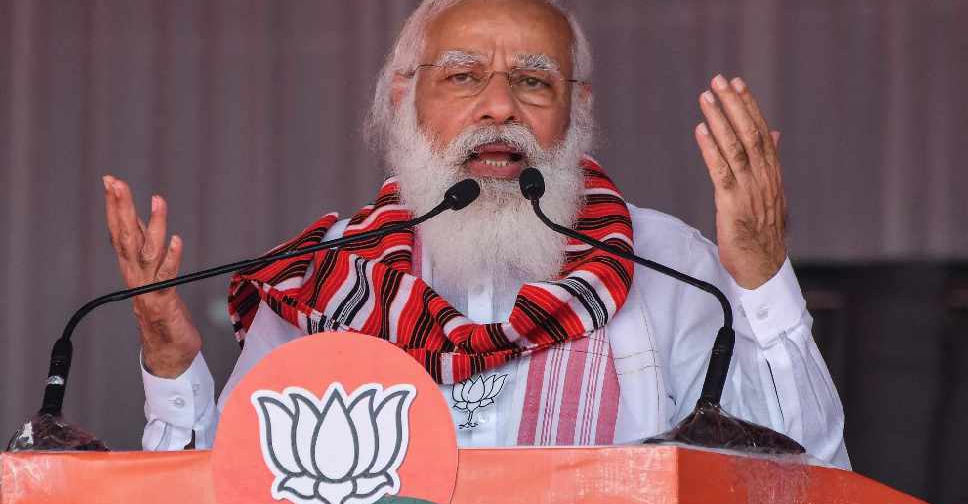
Indian Prime Minister Narendra Modi's approval ratings have fallen to a new low, two surveys showed, as the country struggles to contain a devastating second wave of the coronavirus pandemic.
Modi, who swept to power in 2014 and was re-elected in 2019 with the biggest majority of any Indian politician in three decades, has long fostered the image of a powerful nationalist leader.
But India's COVID-19 caseload surged past 25 million this week, exposing a lack of preparation and eroding Modi's support base, according to US data intelligence company Morning Consult's tracker of a dozen global leaders.
Modi's overall ratings this week stand at 63 per cent, his lowest since the US firm began tracking his popularity in August 2019. The big decline happened in April when his net approval dropped 22 points.
Another survey by Indian polling agency CVOTER found the number of respondents "very much satisfied" with Modi's performance had dropped to 37 per cent from around 65 per cent a year ago.
For the first time in seven years, respondents expressing dissatisfaction with the Modi government's performance outnumbered those satisfied with it, CVOTER data shows.
"The prime minister is facing the biggest political challenge of his career," CVOTER founder Yashwant Deshmukh told Reuters.
The sharp fall in popularity comes as the pandemic appeared to be overwhelming large urban centres such as Delhi, where hospitals ran out of beds and life-saving oxygen. Bodies piled up in morgues and crematoriums and anger grew on social media over the suffering and perceived lack of government support.
The situation has since eased in Delhi and Mumbai as cases have fallen but the virus has penetrated deep into India's vast hinterland where public health facilities are weaker.
"The people of India — or at least the vast majority — have... come to the conclusion that they have to rely only on themselves, and their families and friends, to protect their lives," said P. Chidambaram, an opposition leader.
"In the battle against COVID-19, the state, especially the central government, has withered away," he said.
Modi's government has said it is doing its best to tackle the "coronavirus storm", calling it a once-in-a-century crisis.
Despite the slide in his approval ratings, Modi remains the country's most popular politician, with the opposition unable to capitalise on the government's bungled response to the pandemic, CVOTER data shows.
Modi does not face a national election until 2024.

 Iranian President Raisi killed in helicopter accident, state media says
Iranian President Raisi killed in helicopter accident, state media says
 ICC prosecutor seeks arrest warrants for Israeli, Hamas leaders
ICC prosecutor seeks arrest warrants for Israeli, Hamas leaders
 Assange given permission to appeal against US extradition
Assange given permission to appeal against US extradition
 Israel intends to broaden Rafah sweep, Defence Minister tells US
Israel intends to broaden Rafah sweep, Defence Minister tells US
 New Taiwanese president calls on China to stop threats
New Taiwanese president calls on China to stop threats



